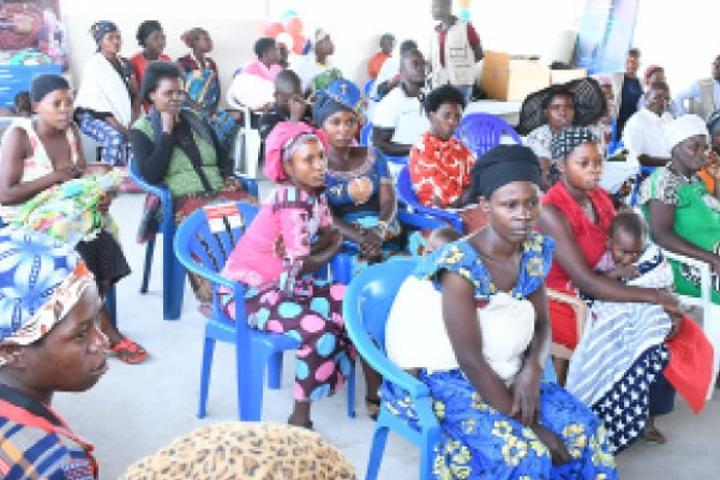Africa-Press – Uganda. The management of Kyaka II Refugee Settlement Camp in Kyegegwa District has raised concern over reduction of food rations and cash assistance provided by the World Food Programme to refugees, saying the development has affected refugees.
Mr Loe Asiimwe Mugabe, the assistant commandant of Kyaka II Refugee Settlement camp, who also serves as the in-charge of health and nutrition in the Office of the Prime Minister, at the weekend highlighted that the camp’s major challenge revolves around food cuts and decreased cash assistance for refugees.
He explained that food rations have been reduced and that some refugees might no longer receive cash assistance, leaving them in a precarious situation. He emphasised the urgency of government and partner intervention to address the gap created by these cuts.
“Because of the reduction in donor funding, the food rations have reduced and some refugees will be removed from the system of getting food or cash assistance. It is now up to the government and some partners to fill the gap,” he said.
He said previously refugees in the camp used to receive 12 kilograms of maize, 2 kilograms of beans, and other food items. However, the system shifted to providing cash assistance, initially amounting to Shs31,000 per month per person but the amount has reduced to Shs13,000.
Mr Asiimwe clarified that refugees are under the care of the government, not the World Food Programme or UNHCR and that the government provides them with land to cultivate food crops, ensuring their self-sufficiency.
“The challenge we have is that drought crops don’t do well,” he added.
Ms Barbara Nyamwiza, the team leader of Save the Children at Kyaka II Field Office, in a phone interview, said: “We are worried that reduction of food will raise protection concerns and increase vulnerabilities of children, especially those we place under foster care. Some households volunteer to raise unaccompanied and separated children and the food rations they were receiving were going a long way in supporting such households.”
She added that in the end, there will be increased cases of gender-based violence (GBV) and conflict with the host communities since most refugees might resort to looking for alternative sources of food that interfere with the community.
Mr Vincent Nyamgweso, the in-charge of the Kaborogota health facility and a clinical officer, emphasised the necessity for the government and the World Food Programme to diversify the food provided to refugees to improve their nutrition.
He expressed concern that the refugees in the camp are not receiving sufficient food, and yet a more varied diet is crucial for maintaining a healthy population.
Ms Emily Doe, the head of the area office of the World Food Program South West, in response, said food reduction is due to a reduction in the funding over the past three years, resulting in reduced cash assistance to refugees.
She said effective at the end of this month, the funding allocation will be adjusted, with the most vulnerable refugees receiving Shs24,000 and the moderately vulnerable receiving Shs12,000.
However, Ms Doe clarified that not all refugees in the camp will receive the same assistance, as allocations will be based on vulnerability assessments. While some refugees may miss out on cash assistance, she added that it will not affect their refugee status.
For More News And Analysis About Uganda Follow Africa-Press






